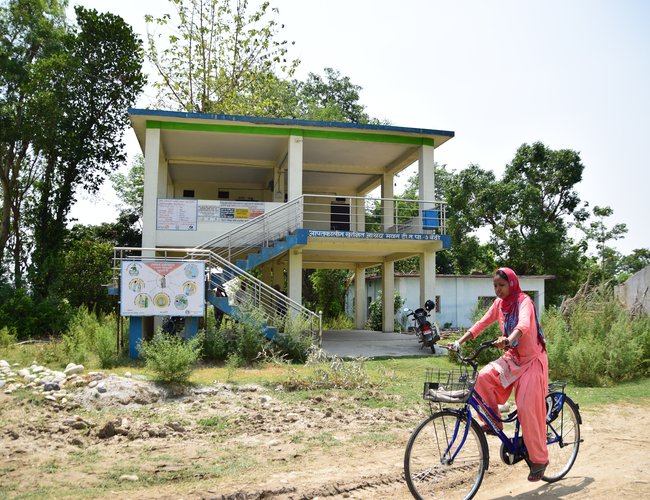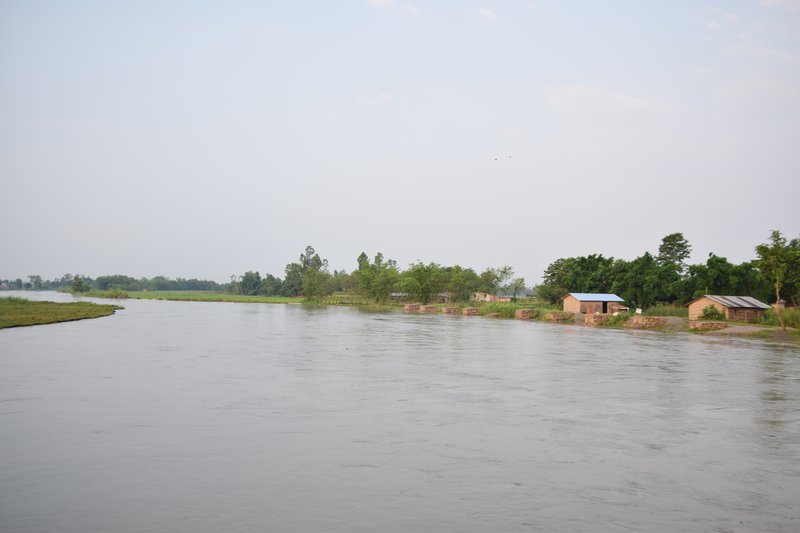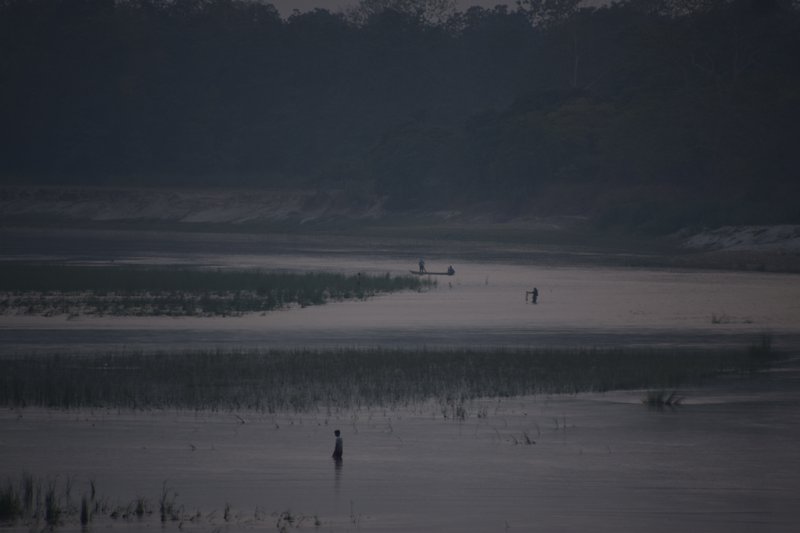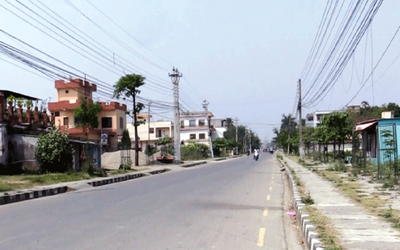
A new report from Practical Action and Mercy Corps highlights the increased vulnerability of Nepal's flood prone communities to Coronavirus. In communities surveyed in western Nepal, over half of the flood evacuation sites do not have the handwashing facilities while 80 per cent lack quarantine facilities. Because of the growing pandemic and lockdown, hunger and poverty are also increasing.
Avoiding a perfect storm: COVID-19 and floods in Nepal has surveyed Community Disaster Management Committees in 46 flood prone communities across 5 districts (Baitadi, Bardiya, Dadeldhura, Kailai, and Kanchanpur) through phone interviews about their plans to respond to floods and COVID-19.
The report warns that—with expected flooding during monsoon season, Coronavirus will exacerbate the situation for many vulnerable communities in Nepal.
The report highlights 60 per cent of communities already report food shortages, with marginalized groups, such as the Dalit population, especially facing difficulties; Access to health care is limited; one in five communities surveyed are typically cut off from health services during floods and landslides in monsoon season.
Only 17 per cent of communities have quarantine facilities, and 22 per cent of these facilities at risk from flooding and landslides due to being in flood-prone areas and not having alternative sites; 43 per cent of flood evacuation sites lack handwashing facilities, and 57 per cent do not have hand soap in stock.
“The situation is highly concerning, but solutions do exist and we know they work. Donors and government should increase funding to build and maintain handwashing facilities in evacuation sites and distribute hand soap ahead of the monsoon season. We also need immediate funding for the construction of additional quarantine and isolation facilities with adequate drinking water and sanitation facilities, as up to 600,000 Nepali migrants are expected to return from overseas in the coming months. Now more than ever, we must invest in building community resilience to climate shocks like more intense storms that lead to floods, and we must do this alongside helping people fight the Coronavirus pandemic,” said Report co-author, Bikram Rana from Practical Action in Nepal.
“The monsoon season is an extremely difficult time for our community and it will be very challenging to respond to floods and safely evacuate people as we cannot ensure distancing.” The report’s author, Yoko Okura from Mercy Corps says: “Coronavirus is disproportionately affecting vulnerable populations, many of whom are already on the front lines of climate crisis. The pandemic makes it infinitely harder for families to cope with monsoon season, with communities already reporting challenges in meeting basic needs such as food and water. We know from previous flooding during monsoon that conditions will only get worse,” said ” Laxmi Ghartimagar, Community Disaster Management Committee member in Kailai District says:
"To address and minimize local risks resulted from COVID-19, local solutions are required. The Local Disaster Risk Management Committees and Local Emergency Operation Centers housed at the local government must be promoted as they can be instrumental in localized preparedness, risk communication and effective coordination. These government mechanisms for disaster risk reduction must be linked with Community Disaster Risk Management Committees in order to get community ownership in disaster risk reduction and management. Coronavirus preparedness must be coupled with multi-hazard risks preparedness, without which people will be further exposed to corona infection while also being more vulnerable to disaster risks," Dr. Dharam Raj Uprety, the thematic lead: Climate and Resilience from Practical Action.
The Zurich Flood Resilience Alliance is calling for investment by government and donors in order to implement additional Coronavirus-related disaster preparedness this year.


- Three-Day Global Science-Policy Forum: Socially Inclusive Solar Irrigation Systems Concluded
- Apr 26, 2024
- Nepal And China Ink Two Agreements , PM Prachanda Meets Chinese Delegation
- Apr 26, 2024
- Nepal Army Held National Cyber Security Symposium
- Apr 26, 2024
- Nepal’s Investment Landscape Revitalize By Nine Ordinances: FNCCI President Dhakal
- Apr 26, 2024
- Weather Forecast: Partly Cloudy In Hilly region And Mainly Fair In Plain Areas
- Apr 26, 2024
















